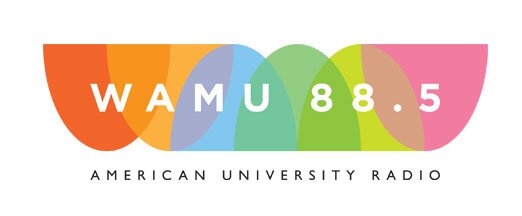
At D.C. School, 1300 Students Stopped to Discuss Ferguson
By: Martin Austermuhle
September 11, 2014

At the Columbia Heights Education Campus, students use social justice issues like the shooting of Michael Brown in Ferguson, Mo. to prompt discussions and improve their writing skills.
On any normal Friday, students in Joe Talarico's AP English Literature at the Columbia Heights Education Campus could expect to discuss Antigone or The Great Gatsby. But on the Friday before the Labor Day weekend, they were asked to reflect on something different: the shooting of 18-year-old Michael Brown by a police officer in Ferguson, Missouri.
And it wasn't just them: over 1,300 students across the campus, which encompasses a middle and high school, were asked to do the same. Whether in English, science or math class, the students — overwhelmingly Latino and black, writing either in English or Spanish — took an hour to consider whether events like Brown's shooting could have occurred elsewhere and how they could be prevented in the future.
"Civilization has taught us to judge a man not by his character but by his race," wrote Abreham Gebre, 17, echoing other students who saw Brown's shooting through the lens of racial injustice. But not all agreed. "This is not a case of racism," wrote Yasmeen Webb, also 17. "This is a case of faulty training."
The writing prompt came the same week that D.C. Public Schools released a five-page guide to teachers who wanted to lead discussions on Ferguson with their students, but it also followed a similar exercise at the school a year earlier: students had been asked to write about the 50th anniversary of the March on Washington. According to principal Maria Tukeva, the exercise had been such a success that she decided to expand it this year.
"Normally you ask students to write and they groan, but when we had this prompt that was so compelling, students just wrote a lot and they didn't have to be encouraged. We decided this year that we wanted to do it every month," she explains.
Tukeva says that the writing exercises — which are used to help students improve their writing skills — will focus on social justice, a theme that has weaved its way through the school and its many iterations since it was founded 30 years ago.
"We were founded in response to a social justice issue: immigrant young people were not being served by the public schools," she says. "From the beginning, our school wasn't very wanted, and we had to fight and go to meeting and testify and even protest to keep our school open. Our students have always had that idea and that sense of advocacy, so we've actually put it in our mission statement. That's part of our curriculum."
That sense of justice — and curiosity — was evident in Talarico's class, where students offered nuanced responses to Brown's shooting. For some, it was a "tragedy" and "disappointment," one that could be visited on them. For others, it remained merely a story on the news; while local police may occasionally give them a second look or search them under the pretense of investigating shoplifting, some of the students admitted that their experiences with police — which in D.C. largely reflect the city's demographics — have generally been positive.
The students coincided on one point: the shooting in Ferguson would happen again elsewhere. "Ultimately, there is no clear solution that can eradicate racism from weakening a nation's cohesiveness," wrote Fernando Umanzor, 17.
That surprised Talarico, who has taught at the school for four years. "I wasn't expecting so much pessimism," he admits. Still, he says the exercise was a success. "You could hear the conversation continue throughout the day," he says. "It sounded like the dialogue was ongoing."
To further fuel those discussions, selected essays were posted in the school's hallways, and students whose essays stood out will be asked to read portions of them for a video that the school will produce.
Later this month, the students at the campus will again sit down to write and discuss a social justice that is both in the news and relevant to many of their lives: the crisis of undocumented children at the border. As they did with Ferguson, Tukeva expects that her students will actively engage with the content.
"The idea is that if you ask students to write, it should be interesting, relevant, compelling, provocative," she says. "Teens are very much interested in social justice, they have a sense of wanting justice."
